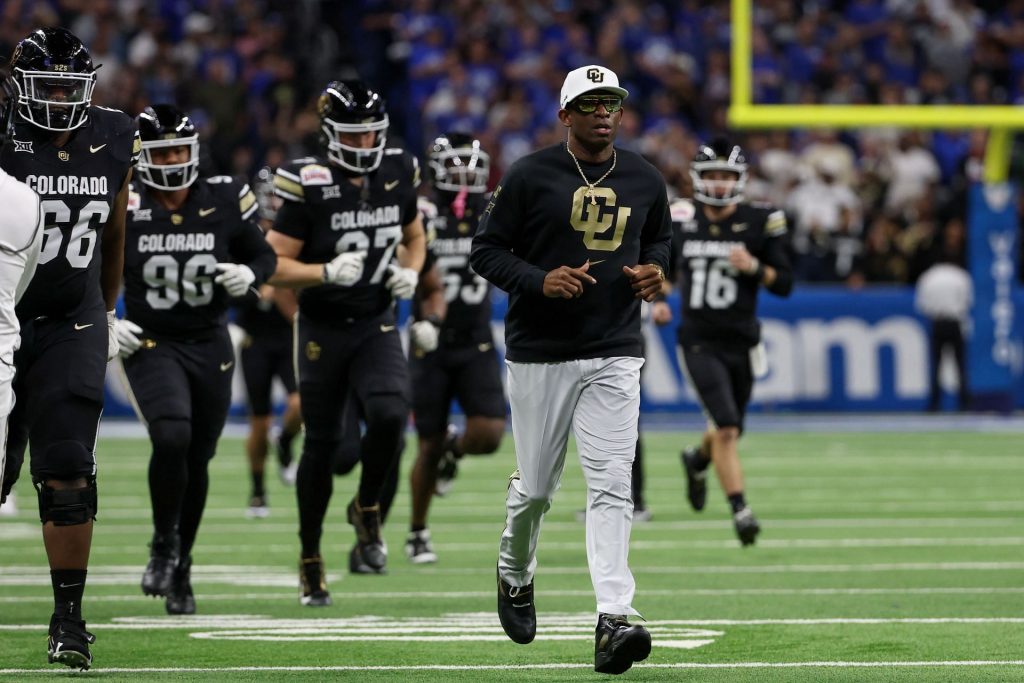Paul Finebaum, a prominent voice in college football, is never shy about sharing his opinions. Recently, his criticism of the College Football Playoff (CFP) format has sparked conversations across the nation. Following the thrilling double-overtime showdown between Texas and Arizona State in the Peach Bowl on New Year’s Day, Finebaum took aim at the CFP committee’s decision to grant first-round byes to four conference champions.
Bye Teams Struggle in the Postseason
In this year’s playoff, the four teams that earned byes—Georgia, Arizona State, Clemson, and Oregon—faced unexpected challenges. None of them managed to advance past the first round. Georgia fell to Notre Dame in the Sugar Bowl, Arizona State lost to Texas in the Peach Bowl, Clemson faced an early exit against Texas, and Oregon was defeated by Ohio State in the Rose Bowl. This raises an important question: Are the byes really beneficial, or do they create an unfair advantage?
Finebaum, speaking on ESPN’s “Get Up,” highlighted the inherent flaws in the system. “I think you have to remember that two of those bye teams really had no business getting byes, and that was the ultimate flaw in the system,” he stated. This sentiment resonates with many fans who have observed the outcomes of the playoffs with growing concern.
Arizona State and Boise State: A Tough Draw
Finebaum expressed particular disappointment with the playoff draws for Arizona State and Boise State, arguing that their placements significantly altered the postseason landscape. “Arizona State and Boise State should not have — should have been playing on the road the very first weekend, and we wouldn’t even have this conversation,” he said. This observation raises another critical point: how much does the selection process impact a team’s chances of success in the playoffs?
Moreover, Finebaum pointed out that Oregon’s struggles in major games have been a recurring issue. Despite being a strong program, they have faltered in crucial matchups. “It’s been such a great program, but in the big games — last year, of course, twice against Washington and this year, the second game against Ohio State [in the Rose Bowl], they really could not get it done,” he noted. This trend has left fans questioning whether the Ducks can ever reclaim their former glory on the national stage.
Big Ten’s Resurgence
As the playoffs progressed, the Big Ten emerged as a surprising force, particularly with Ohio State’s remarkable turnaround after their Week 14 loss to Michigan. Finebaum remarked, “That [Michigan] win against Ohio State did something to Ryan Day that I can’t explain, but it may be the story of the CFP this year if Ohio State can win it all.” This statement underscores the unpredictable nature of college football, where momentum can shift dramatically from week to week.
Ohio State now finds itself on the brink of greatness, with a chance to claim the college football crown. If they can secure a victory against Texas in the Cotton Bowl, they will face the winner of the Penn State-Notre Dame Orange Bowl for the championship title later this month. The stakes are incredibly high, and the excitement is palpable.
The Expanded Playoff Format
This season marked a significant change in the College Football Playoff format, expanding from four to twelve teams. While this shift aimed to create more opportunities for teams and enhance competition, it has also led to debates about fairness and balance. Finebaum’s critique of the bye system highlights the complexities of this new format. Are we witnessing a fair competition, or are certain teams being favored unfairly?
The parity in the playoffs has been a hot topic, with fans and analysts alike pondering the implications of the expanded format. The excitement of more teams competing for the title is undeniable, but does it dilute the quality of the matchups? As teams navigate this new landscape, the question remains: how will the playoff structure evolve in the coming years?
Looking Ahead
As we move deeper into the postseason, the anticipation builds. The remaining teams are not just playing for glory; they are vying for a place in college football history. The drama of the playoffs is what makes this sport so captivating. Each game is a battle, and every play can change the trajectory of a season.
For now, the focus is on the upcoming matchups, where anything can happen. The excitement of college football is alive and well, and fans are eager to see how the story unfolds. Will Ohio State rise to the occasion? Can Arizona State and Boise State bounce back in future seasons? The answers lie just around the corner, and one thing is for sure: the passion for college football will continue to ignite discussions and debates long after the final whistle blows.





























